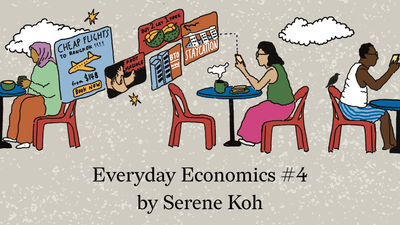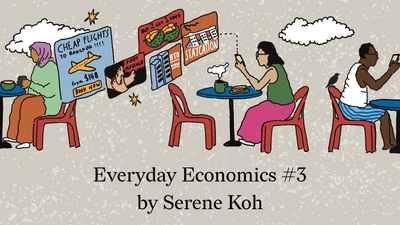Picture the typical upper-middle class Singaporean family. A highly educated husband and wife with “good” jobs in areas like medicine, law, engineering and the civil service. If they have children, they probably employ a domestic worker. Their kids attend pre-schools with low teacher-to-child ratios. Grandparents may pitch in with childcare. When the domestic worker has a day off, the parents don’t think twice about eating out or ordering in. A range of tuition and enrichment classes keep their children occupied. Free from handling the bulk of domestic chores, higher-income parents can focus on engaging, interacting with, or guiding their children.
But that’s not the end of the story—there are other less-discussed forms of family work that keep the wheels turning. We can think of this residual work broadly in terms of overlapping circles of managerial work, organisational work, mental work, and emotion work. If this sounds familiar to you, you’re not alone: “My husband is a fantastic partner. He shares a lot of the family duties and he is great with the kids. But still…he [would be] asking me ‘what do we have going on this weekend’ and I would feel myself getting frustrated.”
For a growing sub-group of the younger population, housekeeping and breadwinning duties are shared equitably. According to a 2020 study by Ipsos, a market research firm, in conjunction with United Women Singapore, close to nine out of 10 married Singaporeans believe housework can be shared equally, and younger couples are more likely to agree that they share housework equitably. Yet in relation to domestic work and parenthood, women still report more stress and less well-being than men.
One piece of this puzzle may be that men and women don’t agree on the extent to which responsibilities are in fact fairly allocated. For example, 45 percent of women report that they are typically responsible for minding, bathing and feeding children. However, only 23 percent of men agree that their spouse is. Why is this so?
This essay considers forms of domestic and caregiving work that are less visible, how the allocation of such work may be preventing couples from each achieving the best experience of family life and individual fulfilment, and what it takes for change. Note that the Ipsos study’s sample approximates Singapore’s population in terms of race and gender, but is skewed towards higher-income participants, with about 80 percent classified as middle- or upper-class, based on their individual incomes. Thus the focus here is on upper-middle class, heteronormative families. Other socioeconomic status-related perspectives will be considered in future essays.
A common joke in Singapore is that men have one boss in the office, and another at home—their wife. The Ipsos study’s findings indicate that women are more likely than men to be responsible for managing households. “Despite a lot of home help and house help, the entire responsibility…to see it through, was on my shoulders,” said one woman. Wives tend to manage the overall relationship with the domestic worker. Women were also likely to plan family meals, considering nutrition, individual preferences, selection of ingredients or special events. Even after “outsourcing the work”, another woman said, the running of the house is “squarely in my court”.





